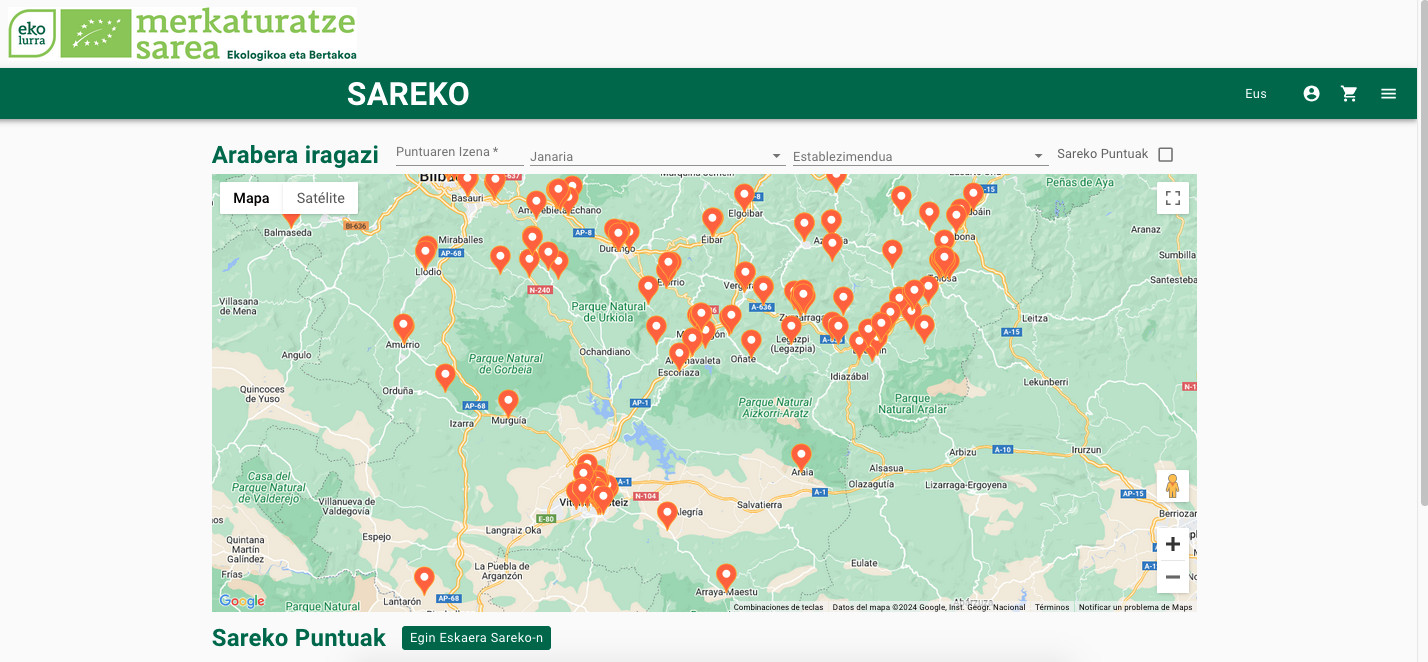
- ENEEK-Ekolurra is the Organic Production Council of the CAPV, which, in addition to certification, drives the promotion of the ecological model. “Today, we clearly see that organic production is a model of the future and that there is a need to inform and incorporate the issue into the agenda,” explained Judit García Llorens, member of the Etxeberrigoikoa House of Olaberria and president of the council. On 23 September, coinciding with European Union Organic Agriculture Day, a new tool was presented from the Council: Network search engine.

Garcia stressed that although there is public interest, there is often a lack of information and that the Network’s search engine is in place to fill this gap. “The search engine shows us the different organic products and productions we have in the three territories to see in a simple way what we have around us,” he explains. Through an interactive map and a search engine with various filters, citizens have the opportunity to get to know their closest projects in Sare. “We are producers and processors who feed the search engine, we say where our products can be obtained,” added lehendakari.
The first version of the search engine was presented at the end of September, but the Council has stressed that they want it to be a dynamic tool, that more producers and processors join the project and that the search engine is being renewed and extended. “For the time being, the Network is an information and management tool, but some producers also use it to collect orders and it is an idea of the future to work in this field,” he explained. The weekly market, the consumer group and cooperatives, the shops of towns and neighbourhoods … have received all the points where organic products can be purchased: it already brings together more than 200 points spread throughout the Basque geography.
Progress and challenges of the ecological model
At a time of crisis and general decay in the primary sector, García has insisted on the need to expand the commitment to the ecological model. “Agriculture and organic farming is the model, on the one hand, because it cooperates with the cycles of nature in food production, but also increases the autonomy of producers.” At ENEEK there are 740 operators and he has stressed that it is produced from everything: wine, cider, chicken, veal, eggs, vegetables, dairy, cheese, bread… “We have the food that anyone needs in everyday life.”
In recent years the number of productions has been growing but lehendakari has stressed that they are still far from the objectives set in Europe: “By 2030, the challenge has been to make 25% of production environmentally friendly, and here, today, we are around 5%. If we want the ecological to be a model of a normalized future, we will have to take bigger steps.”